First Global Plastics Treaty Talks in Dakar
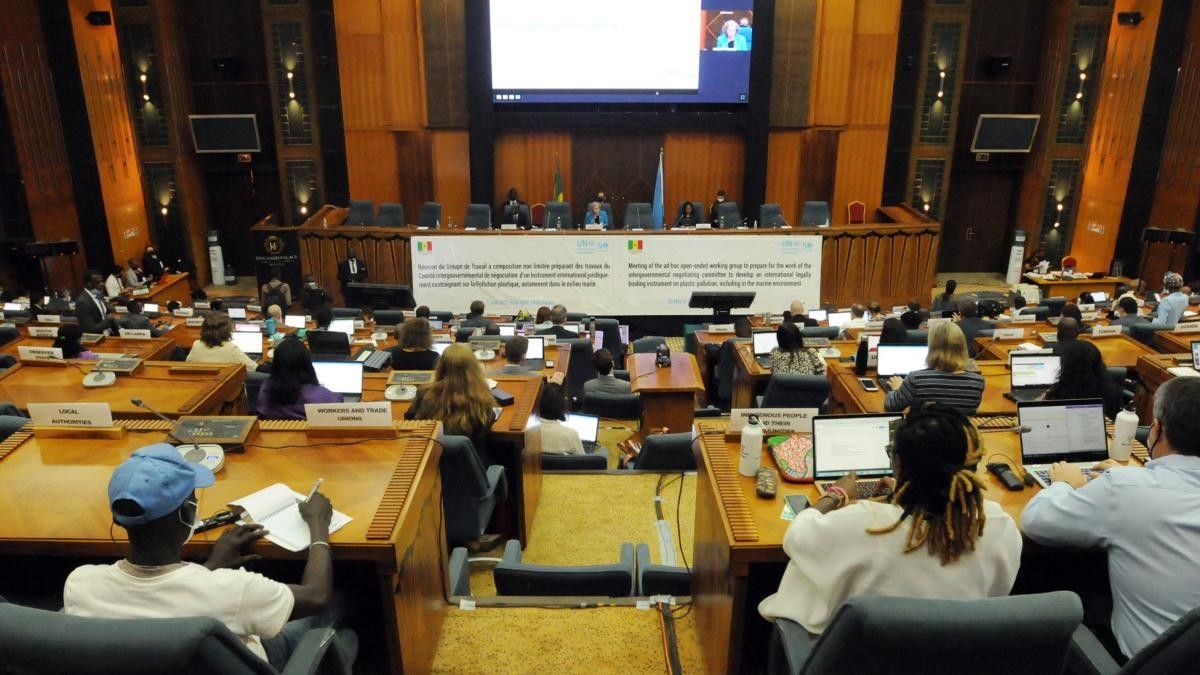
This is your Ocean Plastics Report for 6/2/2022
Pre-Negotiations for the Global Plastics Treaty Take Place in Dakar, Senegal
The first meeting of the ad-hoc open-ended working group (OEWG) to develop a legally binding instrument on plastic pollution got underway in Dakar, Senegal this week. According to an event organizer, 900 participants split between in person and online formats were reported to be in attendance.
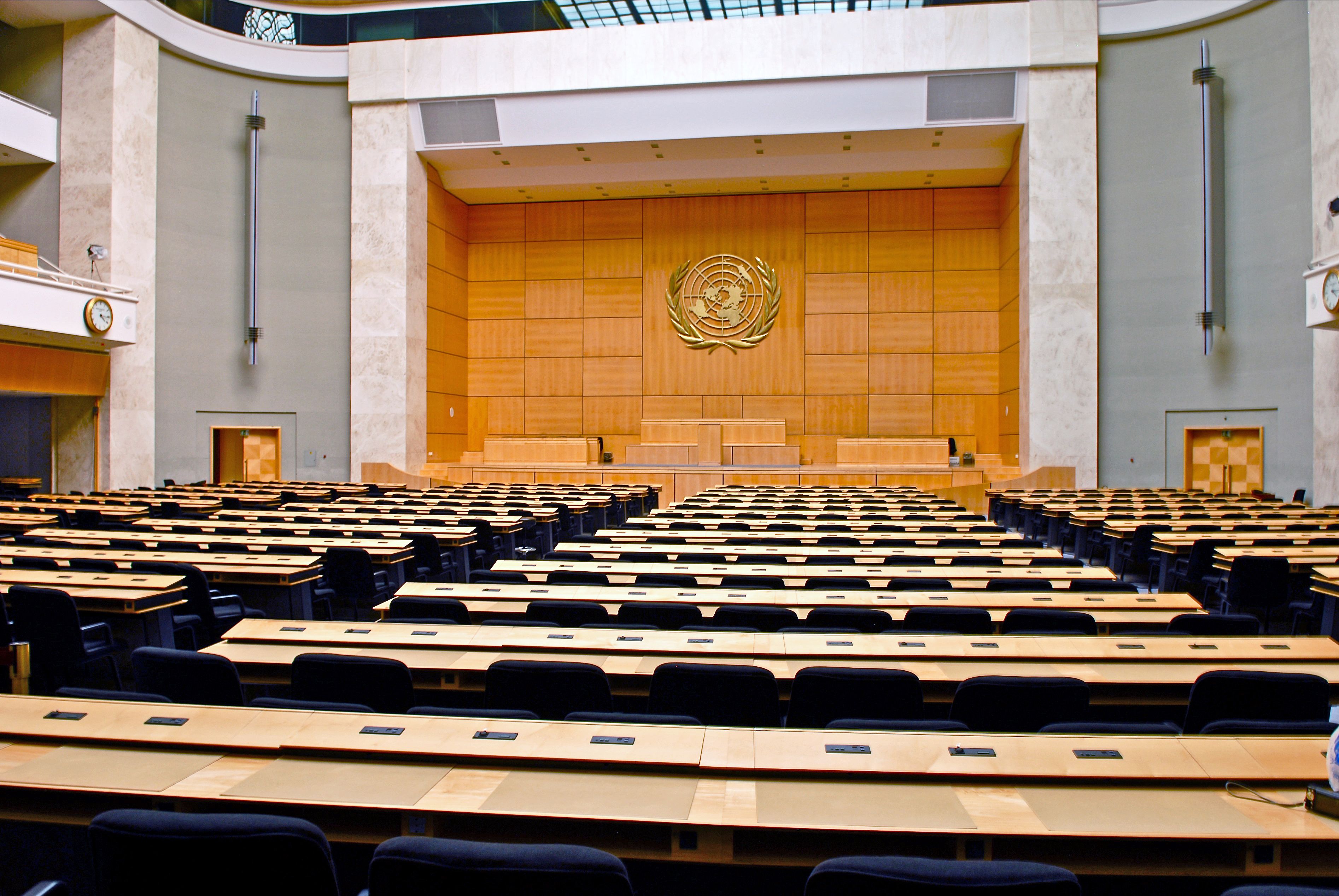
The plan of work for this series of OEWG meetings was to focus on organizational issues for the Intergovernmental Negotiating Committee (INC) that will handle negotiations. Topics included:
-The timeline of the negotiations and number of meetings
-How non-governmental stakeholders would participate
-Procedural concerns such as consensus, voting, and vetoes
What follows is a day-by-day breakdown of the proceedings.
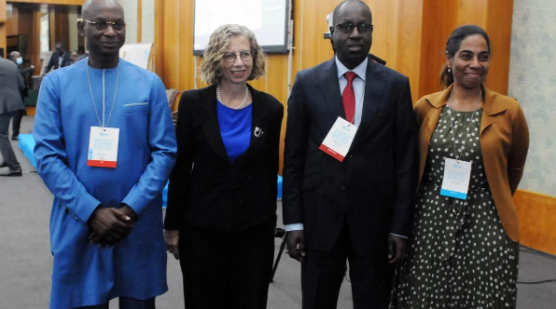
Left to right: Siaka Coulibaly, Resident Coordinator; Inger Andersen, Executive Director, UNEP; Abdou Karim Sall, Minister for the Environment and Sustainable Development, Senegal; and Leticia Carvalho, UNEP.
Photo: IISD/ENB | Diego Noguera.
May 29
On Day 1 of the meeting in Dakar attendees heard general statements touching on the timeline for the INC. When points were raised about how many meetings should take place, many attendees seemed to prefer a 5-meeting schedule.
Attendees also shared their priorities for the process, with many stressing the meaningful inclusion of a wide range of stakeholders, from the private sector to informal waste pickers.
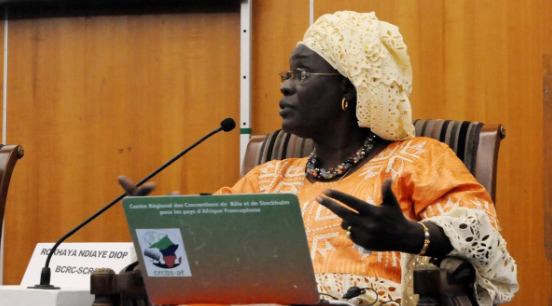
Rokhaya Ndiaye Diop, Basel and Stockholm Conventions Regional Centre in Senegal. Photo: IISD/ENB | Diego Noguera.
Panels were held on the following topics:
- Product and material innovation/product design - Archawat Chareonsilp, ETRAN, said regulatory pressure on the private sector will soon be amplified and directed to consumers, who will thus demand solutions to plastic waste. Members of plastic value chain were urged to get ahead of this trend.
- Innovative business models - Jodie Roussell, Nestlé, detailed the company's plans to ensure that none of its packaging ends up as litter or in landfills.
- Environmentally sound waste management - Rokhaya Ndiaye Diop, Basel and Stockholm Conventions Regional Centre in Senegal, promoted dual-involvement of the public and private sectors in waste management, alongside government entities.
Read more about May 29th proceedings at IISD/Earth News Bulletin here.
May 30 and 31
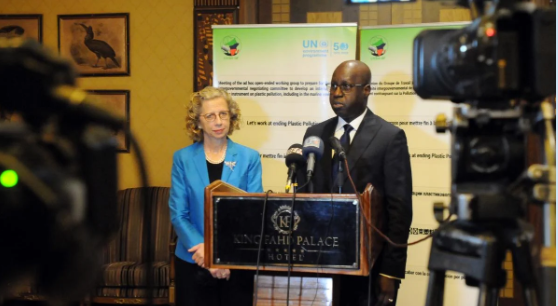
Inger Andersen, Executive Director, UNEP, and Abdou Karim Sall, Minister for the Environment and Sustainable Development, Senegal, during a press event. Photo: IISD/ENB | Diego Noguera.
On Day 2 of the meeting in Dakar, participants began proposing rules of procedure for the future Intergovernmental Negotiating Committee meetings. These rules will form the basis of how the negotiation meetings will operate.
Many of the procedural rules being discussed draw from the template of the INC for the Minamata Convention on Mercury, which became effective in August 2017. The Center for International Environmental Law (CIEL) has produced a comparison table to highlight similarities, differences, and issues of concern between the process followed to adopt the Minamata Convention and the suggested rules of procedures for the negotiations of a plastics treaty, available here.
A Multi-Stakeholder meeting for this day was aimed to address concerns related to informal waste pickers/workers. Topics included:
- How to empower informal waste workers,
- Including informal waste workers in decision-making processes related to plastic pollution
- Creating decent work opportunities for waste workers which ensure social protections
- Establishing platforms for informal waste workers to engage with policymakers
Read more about May 30th proceedings at IISD/Earth News Bulletin here. May 31st proceedings available here.
June 1
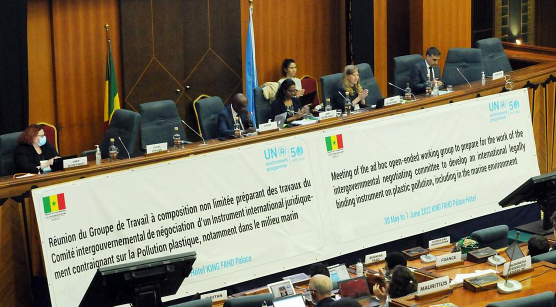
The dais at the end of the June 1st meeting Photo: IISD/ENB | Diego Noguera.
Robert Bunbury, Department of Foreign Affairs and International Trade for Canada, reported that the informal working group addressing the rules of procedure for the INC had met into the night on Tuesday, reaching agreement on most of the rules at 1:00 am on Wednesday. (Note: OPLN will follow up soon with a report on the rules of procedure)
Soon after, it was established that the first Intergovernmental Negotiating Committee (INC-1) will take place in Uruguay in November 2022
Finally, delegates further discussed the organization of the multi-stakeholder forum for the exchange of information and activities related to plastic pollution, in order to inform INC-1. They agreed to submit additional comments and suggestions to the Secretariat by the end of June 2022.
The topic of the day's Multi-Stakeholder meeting was “Upscaling and redirecting finance, incentives and trade.” Discussed, inter alia, were the following:
- The roles of banks in mitigating planetary challenges through financing solutions
- Managing risks and opportunities for stakeholders
- How trade policy can effect systems change
- The airline industry's push to replace single-use plastics
Read more about the June 1st proceedings at IISD/Earth News Bulletin here.
WWF Calls for "Start-Then-Strengthen" Approach to Treaty
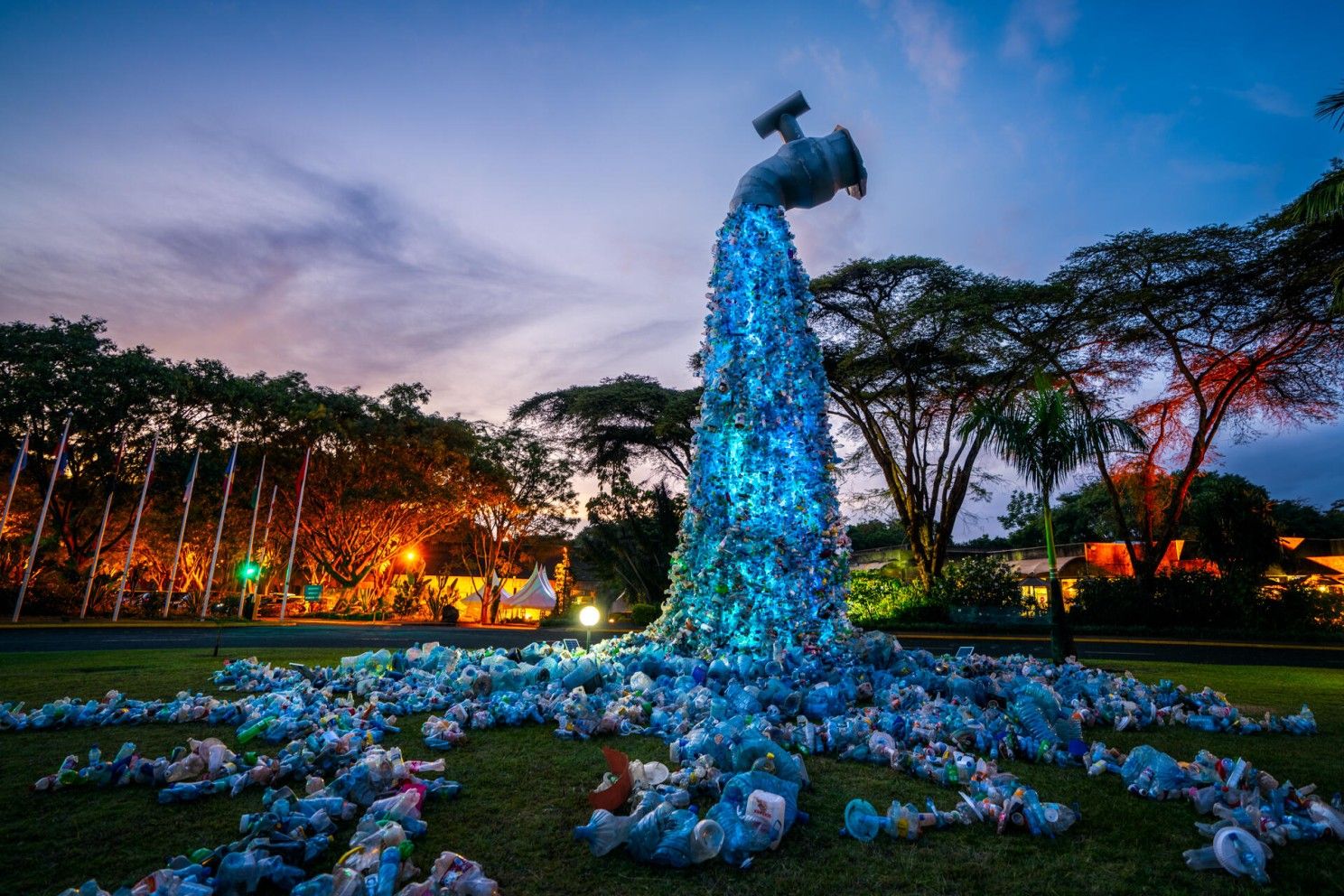
In a May 2022 brief, WWF has called for an approach to the global plastics treaty that addresses the most urgent issues and implements measures quickly, while also preparing mechanisms for States and other parties to discuss and further measures. WWF asserts that this method will improve the effectiveness of the treaty over time.
"The OEWG should acknowledge this complexity in their consideration for the INC’s organization of work, especially given the ambition for the INC to complete its work by the end of 2024.
This acknowledgement will help to facilitate discussions on prioritization of negotiation tasks and ensure that the most problematic pollution issues and the most impactful actions are at the top of the agenda. This way, the treaty’s ambition can avoid compromises in the face of both its subject matter’s complexity and the negotiation time frame."
- May 2022 Brief, WWF
Promoting Participation by Member States
Additionally, WWF's brief lays out three key ideas for promoting participation and compliance by Member States:
1. There should be a process where the treaty enters into force as an instrument of international law when a certain number of States consent to being bound by the treaty through signature and ratification or accession.
If done correctly, WWF says the "the entry-into-force threshold will serve as a tipping point: once a certain number of States have joined, it will be increasingly disadvantageous to remain outside the regime.
2. The treaty must provide States with strong incentives to join — meaning the cost of joining the treaty and complying with the common standard of action must be lower than the cost of not doing so. The compliance system will likely be part of the treaty itself, for instance in the form of trade restrictions or certification procedures.
3. Accountability must also be coupled with implementation support. It is essential that a just transition is ensured through both cost-effective control measures and sufficient technical and financial assistance where necessary.
Resources should be distributed in a way that maximizes cost-efficiency and supports developing countries and countries with economies in transition in their efforts to implement their obligations.